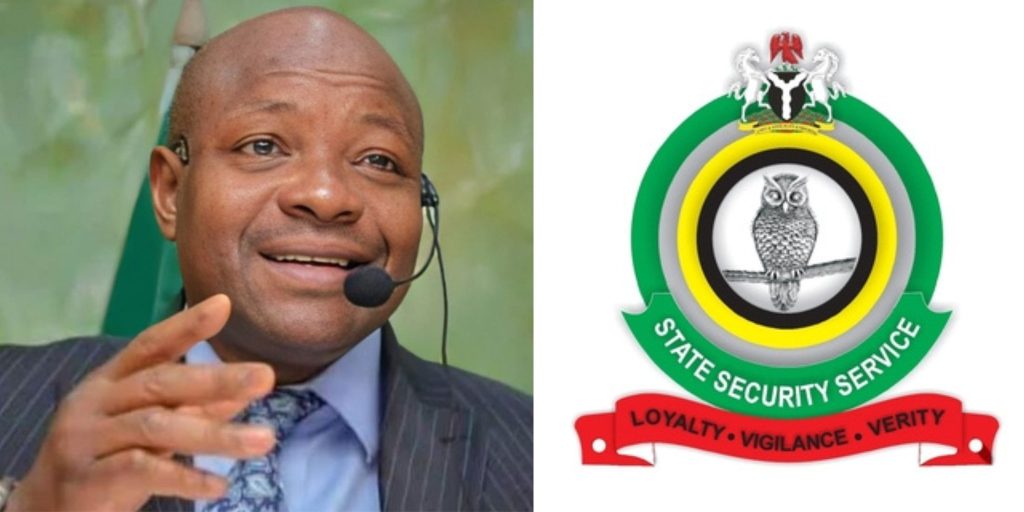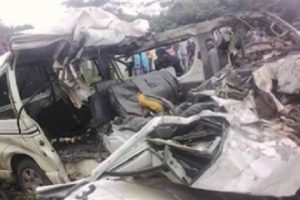
The Director-General of the Department of State Services (DSS), Mr. Adeola Oluwatosin Ajayi, has emphasized the need for Nigerians to actively participate in safeguarding their communities, asserting that security forces alone cannot protect every locality from terrorist threats.
Ajayi made this statement during a public engagement, which was broadcast by Symfoni. He highlighted the limitations of the military, police, and intelligence agencies in covering every part of the country, urging citizens to adopt a proactive approach to security.
Citing Past Incidents of Community Resistance
During his address, Ajayi referenced past incidents in Bauchi State, where local communities successfully defended themselves against insurgent attacks without waiting for security reinforcements.
“Speaking seriously about the practical approach to mobilizing against insecurity, I will share my experience when I was a State Director in Bauchi,” he said.
He recounted a specific incident in Azare, where Boko Haram terrorists attempted to abduct people. However, the local community fought back, resulting in the elimination of all attackers.
“Most of you will remember an incident in Azare. A group of Boko Haram terrorists invaded the town, shooting in an attempt to kidnap people. But the community fought back. They killed some members of the community, but in the end, the people killed all of them. Since that day, there has not been a single terrorist attack in Azare.”
Endorsement from Former Head of State
Ajayi further cited former military ruler General Ibrahim Babangida (retd.), who supported the concept of community-led resistance.
“As a matter of fact, the former Head of State, General Ibrahim Badamasi Babangida, said, and I quote, ‘If we want to stop or curb terrorism, we should emulate the Azare example.’”
Lessons from Tafawa Balewa Local Government
The DSS chief also highlighted Tafawa Balewa Local Government in Bauchi State as another successful model of community defense.
“The people there rose up on one occasion. They knew their terrain better, climbed up the trees and mountains, and when the invaders came, they not only stopped them but also seized their weapons. Since then, you hardly hear about attacks in Tafawa Balewa.”
Communities as the First Line of Defense
Ajayi underscored the importance of mobilizing every member of society to play an active role in security efforts, stressing that the burden cannot rest solely on security forces.
“What I am trying to say is that the practical approach to mobilizing people is that you have to get everyone involved. You cannot expect the Nigerian Army, police, or DSS to protect every Nigerian in every community.
“It is impossible to deploy security forces everywhere. No security agency has the resources to do that.”
He encouraged Nigerians to rethink their approach to self-defense, emphasizing that communities must serve as the “first line of defense” against terrorists and criminals.
“The military, police, and other security agencies are there to handle the bigger threats. But communities must take responsibility for defending themselves at the local level.
“Our culture is communal. We do things together—weddings, ceremonies, and everything. So why can’t we fight against some of the miscreants among us together? The community should make it clear: ‘You cannot come here.’
“This is what Tafawa Balewa has done. If you go there to attack them, you will regret it. I challenge anybody to try it.”
Call for Elite and Community Leaders to Support Security Efforts
Ajayi urged Nigerian elites and influential figures to promote this model of self-defense within their communities.
“When we leave here, those of us who have influence, the elites in society, must discuss with our communities. Come to us, get some approvals and guidance, and then we can stop these criminals,” he concluded.
His remarks reinforce the idea that community involvement is a crucial component in the fight against insecurity, calling for a shift towards grassroots-driven security initiatives across Nigeria.





